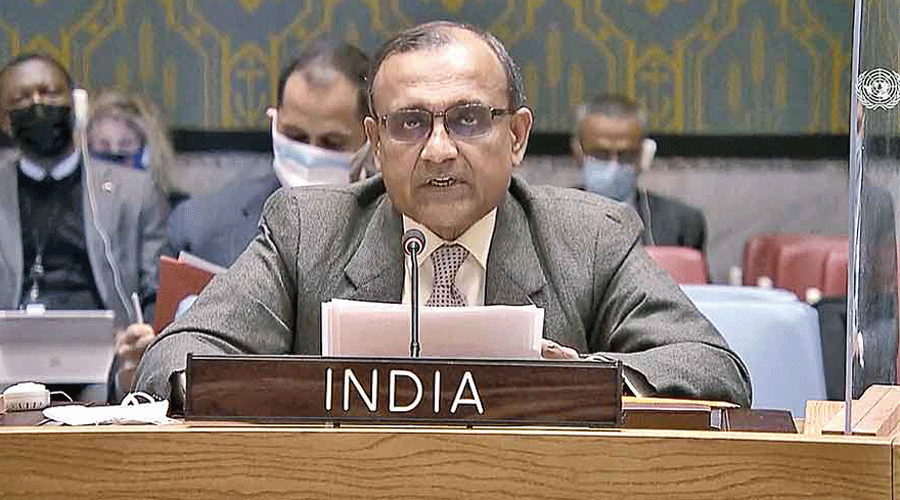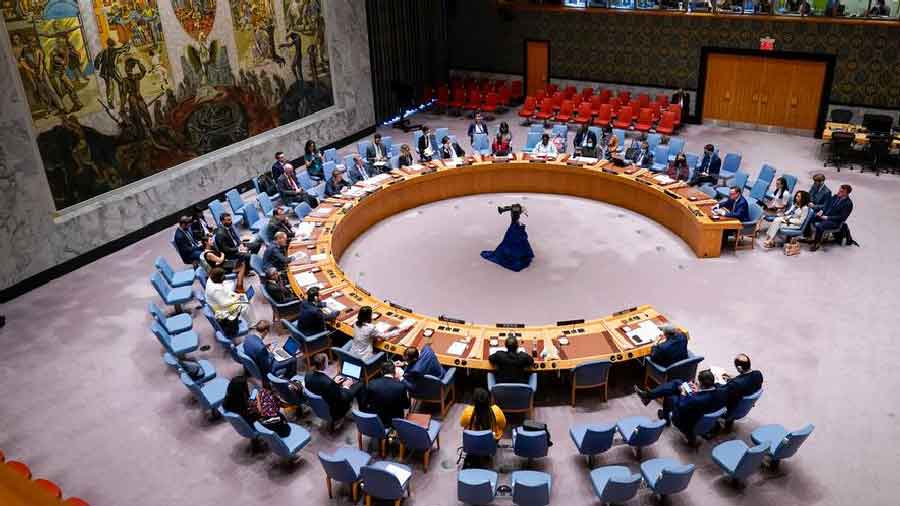In a significant initiative, a resolution on multilingualism adopted in the UN General Assembly on Friday mentions the Hindi language for the first time, with India emphasising that it is imperative that the United Nations embraces multilingualism in a true sense.
The resolution adopted in the 193-member UN General Assembly, presented by Andorra and co-sponsored by over 80 nations including India, underlines the responsibility of the United Nations Secretariat towards integrating multilingualism into its activities, on an equitable basis.
It recognises the efforts of the United Nations to use non-official languages, in addition to the six official languages - Arabic, Chinese, English, French, Russian and Spanish - where appropriate, for communications with specific local target audiences and emphasises the importance of multilingualism in the activities of the United Nations.
The resolution expresses appreciation for the efforts of the Department of Global Communications in highlighting some recent important communications and messages of the Secretary-General in non-official languages, such as Portuguese, Hindi, Kiswahili, Persian, Bangla and Urdu, in addition to official languages, in order to promote multilingualism.
It encourages the Department to disseminate them in all six official languages, as well as in non-official languages whenever appropriate, within existing resources.
India's Permanent Representative to the UN Ambassador TS Tirumurti, speaking in the General Assembly hall, noted that this year, for the first time, the resolution has a mention of Hindi language.
The resolution encourages the UN Department of Global Communications to continue disseminating important communications and messages in official as well as in non-official languages, including in the Hindi language, he said.
The resolution also mentions Bangla and Urdu for the first time. We welcome all these additions. It is imperative that multilingualism at the United Nations in a true sense is embraced and India will support the UN in achieving this objective, he said.
Tirumurti stressed that multilingualism is recognised as a core value of the UN and expressed gratitude to Secretary-General Antonio Guterres for prioritising multilingualism.
Tirumurti highlighted that India has been partnering with the UN Department of Global Communications since 2018 by providing an extra-budgetary contribution to mainstream and consolidate news and multimedia content in Hindi language.
As part of these efforts, Hindi @ UN' project was launched in 2018 with an objective to enhance the public outreach of the United Nations in Hindi language, and to spread greater awareness about global issues among millions of Hindi-speaking population around the world, he said.
Last month, India contributed $800,000 towards efforts to continue to expand the use of Hindi in the United Nations.
India's Deputy Permanent Representative R Ravindra had handed over the cheque to Deputy Director and Officer-In-Charge (News and Media Division), United Nations Department of Global Communications Mita Hosali.
The Indian mission had said that the Government of India has been making continuous efforts to expand the use of Hindi in the United Nations.
Since 2018, the UN News in Hindi is disseminated through UN's website and social media handles on Twitter, Instagram and Facebook. A UN News-Hindi audio bulletin (UN Radio) is released every week. Its weblink is available on the UN Hindi News website.
Tirumurti recalled a UN Security Council resolution adopted in its first session on February 1, 1946, which had stated that the United Nations cannot achieve its purposes unless the people of the world are fully informed of its aims and activities.
The resolution also requests the Secretary-General to continue his efforts to ensure that multilingualism, as a core value of the United Nations, is not undermined by the measures taken in response to the liquidity situation and the coronavirus disease.
It requests the Secretary-General to continue to make efforts to ensure that multilingualism is upheld in future such contexts, and encourages the Secretary-General to seek cost-effective ways to respond to future such risks if necessary.











